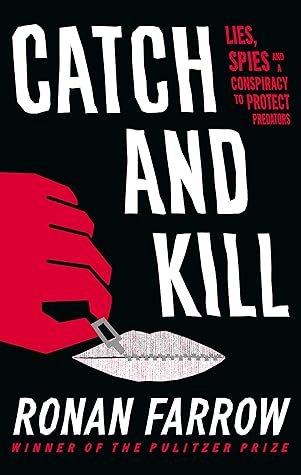More on this book
Community
Kindle Notes & Highlights
by
Ronan Farrow
Read between
June 10 - June 17, 2022
You don’t know if you’re fighting because you’re right, or because of your ego, and your desire to win, and to avoid confirming what everyone thought—that you were young, and inexperienced, and in over your head.
Sorvino told me that she’d struggled for years with whether to come forward with her story and argued—to me but also, it seemed, to herself—that her experience was mild enough that maybe she didn’t have to. But Sorvino’s claim, like the others that involved unwanted advances but not assault, were
Arquette shared Sorvino’s conviction that her career had suffered because she rejected Weinstein. “He made things very difficult for me for years,” she said. Her small role in Pulp Fiction did come afterward. But Arquette felt she only got the part because of its size and Weinstein’s deference to the director, Quentin Tarantino. This, too, was a leitmotif: Sorvino had suspected that her romantic relationship with Tarantino at the time had shielded her from retaliation, and that this protection had dissipated when the two split up.
Israel became a hotbed for such firms. The country’s mandatory military service, and the legendary secrecy and accomplishment of its intelligence agency, Mossad, created a ready pipeline of trained operatives. The Israeli firms began emphasizing less conventional forms of corporate espionage, including “pretexting”: using operatives with false identities.
“All the women before feel I am their fault,” she said. “And if there were women after me, I feel that is my fault.”


